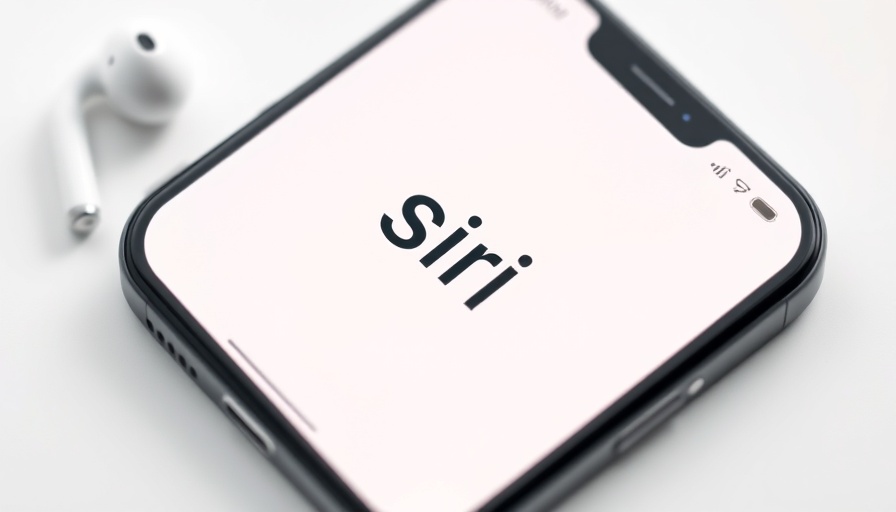
Apple's Struggle With Siri: A Leadership Shake-Up
Apple's voice assistant, Siri, has faced growing criticism for its outdated features and erratic performance. In response to these ongoing challenges, CEO Tim Cook has signaled a significant management change, placing Mike Rockwell, previously head of Vision Pro, at the helm of Siri. This move underscores Apple's urgent need to revitalize Siri, which comparisons reveal lags behind rival systems equipped with advanced language models.
The Growing Discontent With Siri
For years, Siri has been labeled a "problem child" within Apple, struggling to meet user expectations. A recent episode highlighted this frustration: a humorous Reddit post showed that Siri couldn't even identify the current month accurately. This inconsistency illustrates the limitations users face and serves as a stark contrast to competing technologies like Google's Assistant and Amazon's Alexa, both of which employ more contemporary AI methodologies.
The Vision for Siri's Future
Apple had hoped to reinvigorate the Siri brand with the announcement of Apple Intelligence last year. However, progress has been slow, to put it mildly. Users have only seen new animations accompanying the promised features. The major developments expected in June 2024 have now been pushed back, with little clarity offered on the timeline for these updates.
A Deep Dive Into Leadership Changes
Mike Rockwell's appointment may signal a new direction for Siri, yet he is primarily recognized for his technical acumen rather than expertise in artificial intelligence. Observers wonder how effectively he will navigate the complexities of developing a voice assistant that can offer more fluid and human-like conversations, akin to features seen in ChatGPT and Gemini, especially since substantial advancements are rumored to be at least several years away.
Privacy Concerns and User Empowerment
For individuals and businesses entrenched in concerns about privacy and data security, Apple's challenges with Siri are particularly concerning. The potential shortcomings of Siri, paired with its lack of decisive improvements, raise questions about user data handling. For tech-savvy consumers and privacy advocates, protecting personal information continues to be a pressing issue in today's digital landscape.
The Ripple Effect on Privacy Rights
As Apple navigates these changes, the implications for user privacy and trust remain significant. The ongoing issues with Siri may extend beyond mere tech frustrations, serving as a crucial reminder of the balance between convenience and the imperative to safeguard personal data. Consumers are encouraged to stay informed about their rights and the policies of tech giants like Apple, especially as the industry evolves.
Taking Control of Your Data
A vital aspect of engaging with digital services is understanding how to regain control over your data. As artificial intelligence continues to integrate deeper into our everyday lives, consumers must arm themselves with knowledge. Joining the broader movement focused on digital privacy rights isn’t just advantageous; it’s essential for those wishing to maintain agency over their personal data.
Therefore, to effectively regain control over their information, individuals should actively seek resources and strategies aimed at enhancing data protection.

The movement for data privacy and freedom has evolved beyond theoretical discussions, demonstrating tangible ways for individuals to regain control over their personal information. Practical strategies and actionable insights are explored in the article you can still say yes to digital freedom, providing a roadmap for achieving digital autonomy.
 Add Row
Add Row  Add
Add 




Write A Comment